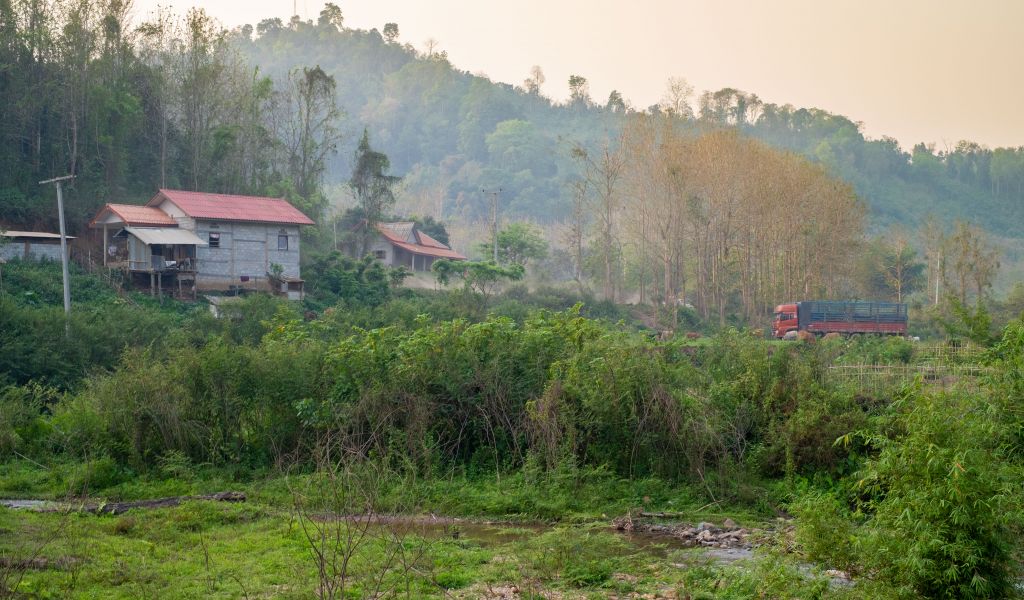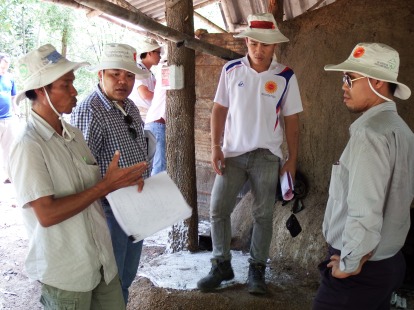People + Good Governance = Better Forests!

Once again it has become clear that for any positive change to occur regarding healthy forests, regular and genuine dialogue is needed amongst stakeholders. This became even clearer while reflecting on the People and Forests Forum that took place last week. Genuine dialogue, however, is a complicated phrase, meaning that an open and safe space must be provided that allows participants to get well informed facts, debate ideas, confront opinions, craft new initiatives, and plan innovative actions. In this respect, it was heartening to witness the young generation taking a stand at the Forum: here a group of young self-entrepreneurs promoting their new eco-friendly forest products, there a young student taking the lead in facilitating discussions on responsible practices for better governance.

As The Nation, a Thailand based newspaper, noted in a recent article about the Forum, the people hold the power to urge governments to incorporate the principles of good forest governance into their policies and practices. Without the “people,” we cannot ensure the health of our forests and the communities that depend on them.
The European Union-funded Voices for Mekong Forests (V4MF) Project understands the importance of including the collective “us” in bringing about change. Prior to the Forum, partners and representatives of V4MF attended the CSO Forum on Social Forestry in ASEAN in Da Nang (Viet Nam), alongside a cohort of 50 civil society organizations (CSOs) working on forest governance issues. Soon after, they took part in the ASEAN Timber Legality Assurance Workshop in Chiang Mai (Thailand) alongside other peers and representatives from the private sector and government ministries. In each of these events, partners gained valuable insights on best practices in the region and were provided the opportunity to reaffirm the crucial role that CSOs play in supporting, strengthening and monitoring forest governance systems on behalf of ”us”. Their active contribution in these events reflected the impact that genuine dialogue has towards more transparency, accountability, fairness and inclusiveness in forest governance systems.
This is not a new realization, of course. For decades, CSOs throughout the Mekong region have played a key role in supporting and advocating for the rights of forest-dependent peoples and improved forest governance. They may work on a myriad of issues at the same time, such as on forest and climate change, forest conservation and restoration, small and micro enterprises development, empowering women and indigenous people, among many others, and at their appropriate scale: in one community, district or province, or at the top ministerial level. Yet oftentimes in this region, they have to operate in challenging circumstances. In some countries, CSOs are still able to function relatively independently and dare to openly criticize governmental wrongdoings that affect the status and health of our forests and communities; in other countries however, they must operate in a delicate environment with a more limited scope for voicing and advocating for the rights of the forest people, at times even at great risk.
There are avenues that allow CSOs to express their views on forest governance through genuine multi- stakeholder dialogues; one is through the negotiations surrounding the Voluntary Partnership Agreement (VPA), which is part of the Forest Law Enforcement, Governance and Trade (FLEGT) initiative. The FLEGT-VPA is a bilateral trade agreement between a country and the (EU) that aims to reduce illegal logging by ensuring that all agreed upon timber and timber products in the VPA annexes are legally verified throughout their supply chain and certified accordingly for export to the EU market. Throughout the negotiations process between the EU and governmental authorities, a strong CSO network may ensure that any related policy or practice does not adversely impact forest communities and forest smallholders. In addition, it creates an opportunity for CSOs to advocate within a state-sponsored forum for the need of continued good governance and land and resource rights for forest people.

The V4MF project stands by their side in this process, seeking to equip them with the best knowledge, skills and tools to voice informed opinions and game-changing contributions. To that effect, it recently supported a forest governance assessment in the five Mekong countries that was led and conducted by the CSO partners themselves. Six policy briefs resulted from it that portray their views on the status and performance of forest governance principles in the region. The study found that in each of the countries, issues of poor forest governance continue to persist. Such findings are supported by several other recent publications and were apparent during a lively debate during the recent ASEAN FLEGT event in Chiang Mai.
These events only reemphasize the constant need for strong CSO networks throughout the region if we are to ensure that an independent monitoring of forest governance ultimately takes place in each country as part of the implementation phase of the FLEGT process. In preparation for that, the partners of the V4MF Project continue to advance their good work, amplify people’s voices and strategically target key working groups and networks to address the remaining issues and gaps in forest governance. In so doing, we continue to propose constructive and contributing actions because ultimately, good governance is absolutely key!

